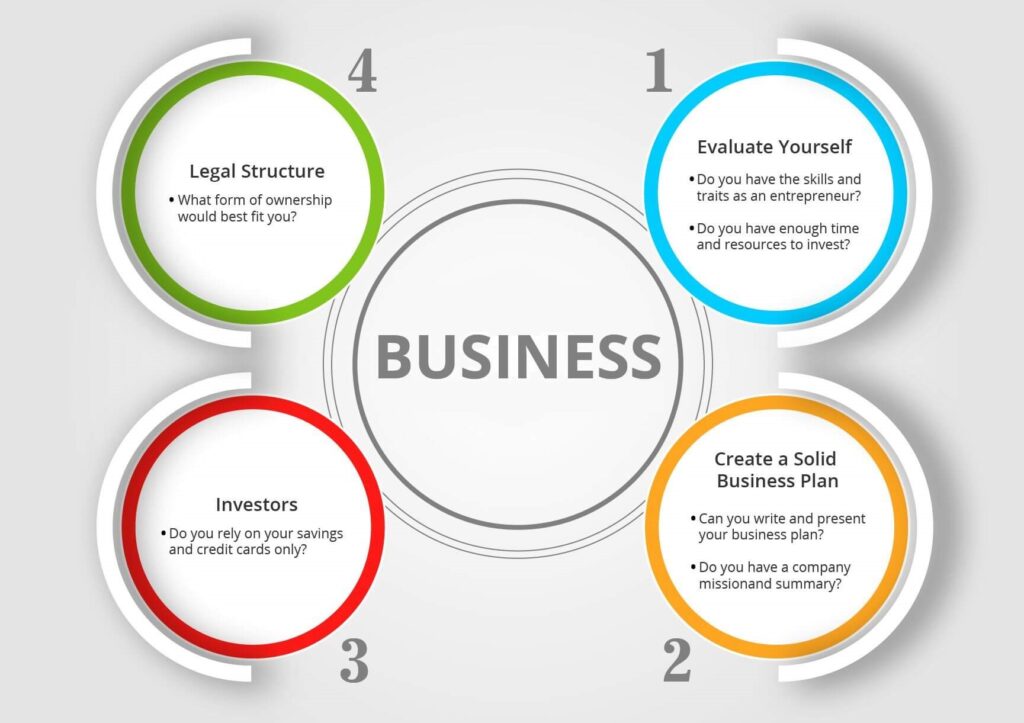If you find yourself pondering over the concept of a strategic plan in business and wondering how to acquire one, know that you’re not alone. Business planning is an essential component that can make or break a company’s future.
It has a direct impact on the growth rate and overall success of the company. A strategic business plan equips the company with the necessary tools to monitor growth, establish a budget, and be ready for any market changes that may arise. In essence, it’s a blueprint for achieving long-term success.
But what is a strategic plan in business? How do you come up with one? How do you make sure that the strategic plan for your business will work or not? Stay tuned because we are here to tell you everything about it.
What Is the Definition of a Business Strategic Plan?
A business strategic plan isn’t just a plain old document – it’s the compass that guides a company toward its goals. Think of it as a roadmap that fuses a company’s vision with the ever-evolving market landscape. It’s not a mere exercise – it’s the blueprint for maximizing market potential, achieving optimal market share, and connecting with customers in a truly resonating way.
By accurately charting this course, a strategic plan enables a business to not only identify its ideal audience but also understand precisely how to reach them. You need to find the sweet spot in a bustling marketplace, allowing your business to fine-tune its sales, advertising, and customer interactions to cater to that specific niche. In a nutshell, it empowers a business to grasp its target audience’s needs and discern the unmet demands within the market—ultimately positioning the business for success and growth.
Strategic Plan in Business – The Purpose

If you’re wondering, “What is a strategic plan in business,” you’re definitely trying to figure out the purpose of having one. Here’s why it’s important:
- Guiding the Way:
A strategic plan serves as a business’s GPS, ensuring everyone is on the same page and headed in the right direction. Think of it like planning a cross-country road trip; you wouldn’t start without a map or a GPS guiding you to your desired destinations – similarly, a strategic plan ensures that your company knows where it’s going and how to get there.
- Setting Clear Objectives:
A strategic plan helps a business define clear and measurable goals. Just like a sports team aims to win a championship, a business aims to achieve specific targets.
For instance, Apple’s strategic plan in the early 2000s centered on designing groundbreaking products like the iPhone, which set clear objectives for the company’s growth.
- Allocating Resources Wisely:
Imagine you have a limited budget for home improvement; you need to decide whether to renovate the kitchen, upgrade the bathroom, or expand the living room. A strategic plan helps a business prioritize where to allocate its resources, whether it’s investing in research and development, marketing, or expanding into new markets.
Amazon, for instance, strategically allocated resources to develop its e-commerce infrastructure, paving the way for its dominance in online retail.
- Adapting to Change:
In a rapidly changing world, adaptation is key to survival. Think of a strategic plan as your business’s survival kit – it equips your company to navigate unforeseen challenges and seize emerging opportunities.
Netflix, for example, shifted its strategic plan from mailing DVDs to streaming content, adapting to the changing entertainment landscape.
- Motivating and Engaging Teams:
Employees are like the engine of a business, and they perform at their best when they understand their role and how it contributes to the bigger picture. A strategic plan motivates and engages teams by showing them how their work directly impacts the company’s success.
Google’s strategic plan, known for its innovative and employee-centric approach, has fostered a culture of creativity and excellence.
- Measuring Progress:
A strategic plan provides benchmarks and key performance indicators (KPIs) to measure progress. This allows a business to identify what’s working and what needs adjustment.
Tesla, for instance, tracks its electric vehicle production numbers and self-driving technology advancements to measure progress against its strategic plan for a sustainable future.
In essence, a strategic plan is your business’s playbook, helping you navigate the complex and ever-changing world of commerce, just like a seasoned coach guides a sports team to victory.
The Elements of a Strategic Plan in a Business
Although many elements make up a strategic business plan – here are the most important ones.
1. Clear Vision and Mission:
Start with a compelling statement that answers the question, “What is a strategic plan in business?” It should be your North Star, guiding your every move.
2. SWOT Analysis:
Dive deep into your strengths, weaknesses, opportunities, and threats. Think of it as your business’s superhero cape – harnessing strengths, shoring up weaknesses, and leaping at opportunities.
3. Goals and Objectives:
Set SMART (Specific, Measurable, Achievable, Relevant, Time-bound) goals. These are like the milestones on your journey – each one marking progress toward your ultimate destination.
4. Market Research:
Understand your audience, competition, and market trends. This is your strategic plan’s GPS, helping you navigate through the ever-changing business landscape.
5. Strategies and Tactics:
Develop actionable plans to achieve your objectives. Think of these as the tools in your strategic toolbox, ready to tackle challenges and seize opportunities.
6. Resource Allocation:
Allocate budgets, time, and manpower wisely. It’s like managing your business’s bank account – invest where it counts.
7. Key Performance Indicators (KPIs):
Define metrics to track progress. These are your performance scorecards, showing you where you’re excelling and where you need to improve.
8. Monitoring and Evaluation:
Regularly review and adjust your plan. Think of it as steering a ship – constantly course-correcting to reach your destination efficiently.
9. Communication and Engagement:
Keep your team informed and motivated. It’s like being the conductor of an orchestra – everyone needs to be in harmony to create a beautiful symphony of success.
10. Flexibility:
Be ready to adapt to changes. Think of it as your plan’s safety net – ensuring you can navigate unexpected twists and turns in the business world.
All in All
By encompassing these vital elements, it becomes a living, breathing blueprint for companies to thrive in an ever-changing marketplace. Remember, a strategic plan is not just about setting goals; it’s about understanding your market, finding your niche, and aligning your business with the needs and aspirations of your target audience. So, no more wondering about what is a strategic plan in business – it’s your time to take action! Good Luck.

